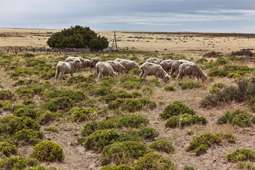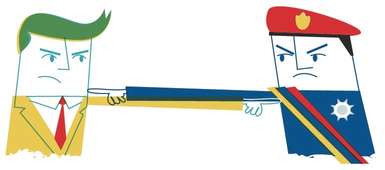Americas / Global
Americas
Briefing
A report on Canada's upcoming election, the referendum in Ecuador and the new high-speed internet connection between Cuba and Venezuela.
Opportunity knocks
Canada [POLITICS]
Forgive Canadians if they’re suffering from democratic ennui: when they go to the polls on 2 May it will be for the fourth time in seven years. While few expect a much different result than the current minority Conservative government led by Prime Minister Stephen Harper, the opposition Liberal and New Democratic parties are betting otherwise. They hope that, despite some positive economic signals, the public will finally tune into their attacks against the government’s lack of accountability. In March, the Conservatives were cited with contempt of parliament for refusing to reveal the costs of implementing their “anti-crime” agenda and the acquisition of new F-35 fighter jets. Around the same time, four Conservative party insiders were charged with violating federal elections laws.
Trust and transparency were the very issues that vaulted the Harper Conservatives into office in 2006 but the recent scandals haven’t bothered voters. Heading into the campaign, polls showed that the Conservatives were edging towards their long-sought majority.
For his part, Harper is playing up his government’s stewardship of the rebounding economy, the best performing in the G7 and he’s offering corporate tax cuts to bolster a recovery. The Liberals under Michael Ignatieff (pictured) instead promise breaks for the middle class and a review of the jet fighter purchase. The New Democrats want to get more pensioners out of poverty, and better health care.
With few forward-thinking policy proposals on the table, it’s the usual election broth – and so far hardly the recipe for breaking Canada’s parliamentary stalemate.



What the leaders should be talking about:
The Canadian government spends more on R&D as a percentage of GDP than most developed countries, yet it lags behind rivals when it comes to productivity gains, investments in technology and new patents. Leaders need to prioritise innovation over high commodity prices as a source of growth.
Get off my land
South America [FARMING]
With world food prices rising and China eyeing up land overseas, South American commodity producers are taking action to stop foreigners buying their prime real estate.
Big buyers want pasture land for cattle; fields for grains, fruits and vegetables; and forests where they can plant eucalyptus for timber and paper. Latin America is rich in such raw materials, with 43 per cent of Brazil’s exports last year coming from commodities. In Argentina (below), where 10 per cent of land is owned by foreigners, the government is preparing a bill to impose limits. Brazil, too, is reviewing a 1971 law that allows foreigners to purchase land in conjunction with locals.
Carp diem
USA [FISHING]
The Asian carp, dubbed the “locust of the river”, is within leaping distance of Lake Michigan, threatening the Great Lakes’ $8bn (€5.6bn) fisheries industry. DNA testing found the carp in Chicago rivers and some locals in Lake Michigan are now pushing for the locks between Chicago water- ways and the lake to be closed.
President Obama’s “Asian carp tsar”, John Goss, is backing the building of new fencing and electric barriers, but an Ohio State University aquaculturist who is an expert in Asian carp says the fish is unlikely to be able to reproduce in the Great Lakes and that officials should focus on managing it in the area’s rivers instead.
Missing link
Cuba [INTERNET]
Cuba, the country with the lowest internet usage in the northern hemisphere, is about to see its connection run 3,000 times faster. The increase is thanks to a 1,600km long fibre-optic cable laid between Cuba and Venezuela, the island’s greatest geopolitical ally.
Until now, only 10 per cent of Cubans have had access to the internet. The connection is painfully slow and at $2 (€1.4) an hour proves prohibitively expensive in a country where the average monthly salary is $20 (€14). What remains to be seen is whether the increase in connectivity will represent greater freedom of expression.
REFERENDUM WATCH
Ecuador
Facts:
Date: 7 May
Issues: Ecuadorians will be asked to vote on 10 issues, ranging from reforms of the judicial process to the regulation of television content and the prohibition of casinos.
Key figure: President Rafael Correa, who came to power in 2007, claims his government’s efforts to fight crime have been stalled by a corrupt and inefficient judicial system.
Monocle comment: There has been staunch criticism of what is seen as an attempt on Correa’s part to concentrate more power and exert greater control over institutions that should remain independent.
Channelling criticism
Venezuela
Globovisión, Venezuela’s 24-hour news channel, is one of the few outlets openly critical of the government. In return Hugo Chávez and his ministers have publicly accused Globovisión’s directors of hatching assassination plots and inciting Venezuelans to violence.


